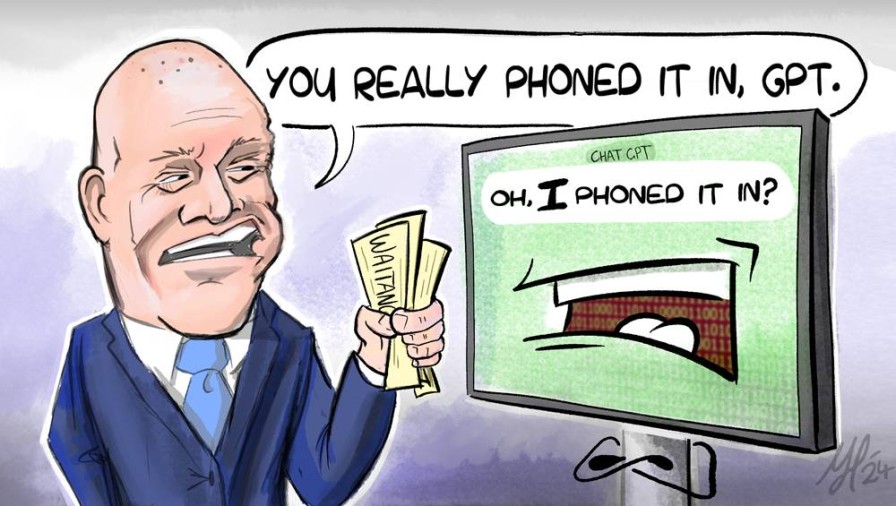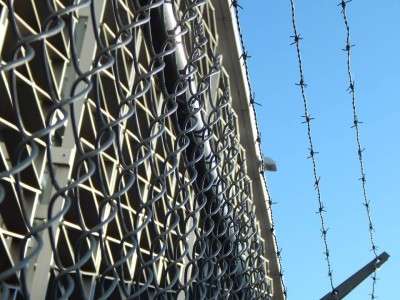Redefining principles, tough on crime, unfinished business
ANALYSIS: The Prime Minister made the National Party’s position on the Treaty Principles Bill much clearer this week.
WATCH: NBR political editor Brent Edwards speaks with Grant Walker.
ANALYSIS: The Prime Minister made the National Party’s position on the Treaty Principles Bill much clearer this week.
WATCH: NBR political editor Brent Edwards speaks with Grant Walker.
It was a bruising week for the Government as it navigated its way through Waitangi Day, with one part of the coalition adamant about redefining the principles of the Treaty of Waitangi, another part dithering.
Then, on Wednesday, Prime Minister Christopher Luxon finally drew a line in the sand – no ifs, no maybes – and ruled out National supporting Act’s Treaty Principles Bill beyond the select committee.
Until then, many were not sure what the National Party’s approach to the legislation would be, even though in Beehive Banter two weeks ago, we reported that “Luxon has made it pretty clear the legislation will go no further once it has been considered by a select committee”.
NBR presenter Grant Walker asks why Luxon was not as emphatic from the beginning as he was on Wednesday about ruling out the legislation going any further. Walker thinks the heat got to the Prime Minister after repeated criticism from Māoridom at the national hui at Turangawaewae, at Rātana, and then again at Waitangi.
He also suggests the whole affair has made Luxon look weak, unlike any other former prime minister.
But, as Luxon himself has pointed out, this is MMP. National has to compromise to get support from its coalition partners – New Zealand First and Act – and this is one example of that.
It is also worth remembering that plenty of commentators suggested former prime minister Jacinda Ardern was in a weak position in her first-term Government, dependent as she was on New Zealand First to put Labour into power.
Luxon was also criticised for repeating parts of the speech he gave as Opposition leader last year at Waitangi in this week’s address.

Illustration: Michael Hickmott.
Having made clear National’s position on the Treaty Principles Bill, the Prime Minister has reiterated that the Māori Health Authority will be scrapped.
Again, Walker wonders why make that announcement after putting the kibosh on Act’s legislation going any further than a select committee.
There are differences. The Treaty Principles Bill is an Act Party initiative it negotiated as part of its coalition agreement and to which National only agreed to support to select committee stage. Scrapping the Māori Health Authority is the National Party’s policy and introducing legislation to disestablish the authority is part of the coalition’s 100-day plan. It has also pledged to stop all work on He Puapua, the work programme that was begun in response to the previous National-led Government’s signing of the United Nations Declaration on the Rights of Indigenous Peoples, having already scrapped the Three Waters reforms and its model of co-governance.
National, like Act, remains implacably opposed to co-governance at a national level, but is keen to devolve responsibility and money to iwi organisations – and non-Māori community organisations – to solve their own problems at an iwi or community level.
Meanwhile, at the coalition’s Cabinet meeting on Wednesday, it was agreed to scrap government funding for ‘Section 27’ cultural reports, which offenders could use to explain their circumstances at sentencing.
The Government reckons scrapping that will save about $7 million and likely increase the prison population by 200 to 400 prisoners over the next five to 10 years.

Prison population set to rise as Government gets tough on offenders.
The Law Society says the move will significantly limit people’s access to justice. Only those able to afford them would get cultural reports written.
“Defunding the availability of these reports through legal aid will have a more pronounced effect on Māori, who remain overrepresented in the criminal justice system,” Law Society president Frazer Barton says.
The Green Party’s courts spokesperson Tamatha Paul called the decision “cruel, irrational, and senseless”.
At his post-Cabinet news conference, Luxon defended the decision, saying offenders could still get people to stand up in court and talk about their background. He also noted – in response to questions about scrapping cultural reports disadvantaging Māori – that Māori were also overrepresented as victims of crime.
As he announced another example of the Government’s ‘get tough on crime’ approach, Luxon also said the Cabinet had scrapped the previous Government’s target to reduce the prison population by one-third.
Just who had been instructed to drop the target, though, was less clear, given it had not featured in any Corrections Department papers since being noted in its 2018 statement of intent.
After repeated questioning, Luxon said he was unclear whether the target was in place, but the Government just wanted to be clear it was being dumped.
It might be the target has already been achieved.
Former Corrections Minister Kelvin Davis – who retired from politics this month – told the Labour Party’s annual conference last year that when he became minister, the prison population was forecast to be about 14,000 by 2023. Instead, the prison population was sitting around eight and a half thousand.

Prime Minister Christopher Luxon.
It is not clear what target the coalition has in mind for the prison population, but Luxon says it would soon come up with its own targets for reducing youth offending and violent crime.
The Prime Minister also promises more action on crime.
“We’ve got a range of other initiatives, as you well know, around our gang policy, around patches, obviously, around consulting and association, and also around firearm prohibition orders and being an aggravating factor in sentencing. That’s being worked on right now in legislation, and you’ll see more of that, obviously, before the 100-day plan expires on 8 March,” he said.
Parliament resumes next week after the Waitangi recess and will sit for four weeks as the Government clears the deck of the initiatives it promised to get done within its first 100 days.
Sign up to get the latest stories and insights delivered to your inbox – free, every day.